25 start with F start with F
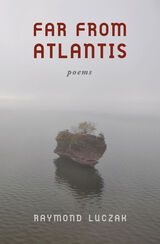
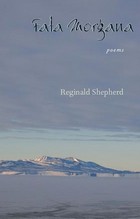
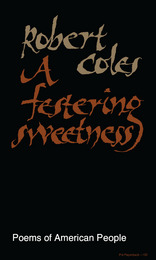
The sense of life and suffering among the poor of the South, the northern ghettos, and the West conveyed in A Festering Sweetness could not be expressed in any form other than poetry. And only Robery Coles, who has lived and worked among these people, could have revealed with such sympathy and insight the minds and emotions of the deprived in America. He is a superb stylist, with an extraordinary sensitivity of ear and eye, as well as a fine and humane psychiatrist—indeed, a man in the doctor-writer tradition of William Carlos Williams.
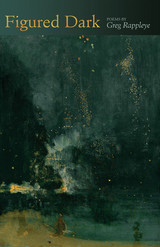
Greg Rappleye’s Figured Dark is a collection of contemporary lyric and narrative poems, set in an American landscape, which takes as its implicit theme the journey of the soul from darkness into light.
The voices in the collection call across a vast landscape of myth, memory, and horrific wreckage. In the title poem, speaking of the phenomenon of fireflies rising at night from a southern field, he writes, “I could read this down to a million tiny bodies, / blazing the midnight trees,” but the reader is left to wonder whether any extravagant numbering can account for the massed starlings, dreamy raptors, dome-lighted Firebirds, flaming bodies, junk cars, and deadly archangels that come to ground in Rappleye’s world, where the spiritual exhaustion of Odysseus is visited upon Brian Wilson, and the young John Berryman seeks recompense from a wily family in northern Michigan.
These poems are by turns wise, elegiac, ironic, and wickedly funny. This is a poet who refuses easy categories. If these poems are anything, they are affidavits of a heart at work, building out of darkness a kind of wild redemption, hard-earned in the real world.
Figured Dark is part of the University of Arkansas’s Poetry Series, edited by Enid Shomer.
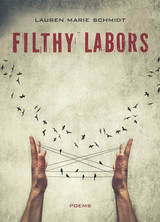
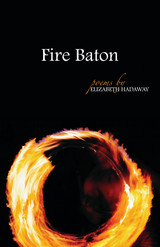
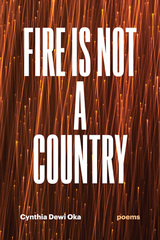
As she builds a lyric portrait of her own family, Oka interrogates how migration, economic exploitation, patriarchal violence, and a legacy of political repression shape the beauties and limitations of familial love and obligation. Woven throughout are speculative experiments that intervene in the popular apocalyptic narratives of our time with the wit of an unassimilable other.
Oka’s speakers mourn, labor, argue, digress, avenge, and fail, but they do not retreat. Born of conflicts public and private, this collection is for anyone interested in what it means to engage the multitudes within ourselves.
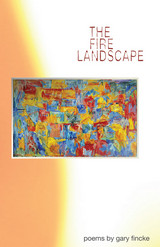
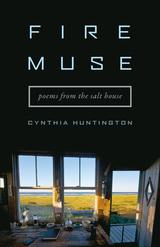


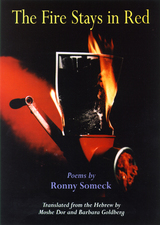
"My mother dreams in Arabic, I dream in Hebrew," says Ronny Someck. Born in 1951, he was uprooted from his native Iraq when he was four. Transplanted to Israel, Someck spent his childhood in a transit camp for new immigrants. There he was surrounded by music, the great singers Umm Kulthum, Farid al Atrash, and Fairuz shouldering up against Elvis Presley and Billie Holiday. No wonder he is so beloved in Israel. In what other poet do we find Tarzan, Marilyn Monroe, and cowboys battling with Rabbi Yehuda Halevi for the hearts and souls of Israelis?
Someck’s poems are rich in slang and distinguished by staccato rhythms, quick cuts, close-ups, and disturbing segues. As in film noir, the sensations are of speed, danger, uncertainty. His distinct Sephardi voice invokes the odors of falafel and schwarma, the army with its supporting cast of recruits and commandos, the bustle of southern Tel Aviv with its small garages, shops, cheap restaurants, its gangs and its Arab workers. He is also the troubadour of the lovelorn, with poems that are hot, erotic, comic, tragic, agape at the wonders of a tear and a tattoo and a snapshot and a bra and a scarecrow.
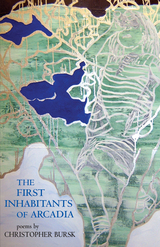
Herman Melville, Matthew Arnold, Sarah Orne Jewett, Dusty Rhodes, and Hoyt Wilhelm skinny-dip and pick up gondoliers and cut figure eights into the ice in Christopher Bursk’s new collection. But the main cast of characters for these poems is the alphabet itself, “the first inhabitants of Arcadia, / now homesick, curious exiles from Eden.” Here are a boy’s first investigations into the nature of language as he studies the backs of baseball cards, and a young man’s infatuation with the “F-word.” The titles sing their lettered songs: “An Ode to j,” “M-m-m Good!” and “O in Trouble.”
Here are “reading lessons,” the author’s exploration of the curses and blessings of the word. It is about the fall from paradise and the gifts that fall makes possible. And over the whole book broods the great lexicographer, Samuel Johnson, that deeply troubled caretaker of the mother tongue. More than an ABC book, this collection asks questions at the very heart of how we understand the world and shows us the glory and silliness at the heart of human life.

Distinguished by its unconventional approach and extraordinary range, this beautifully written book offers new insights into the works—and times—of poets writing between the death of Shakespeare and the execution of Charles I. Well over a hundred original readings provide illuminating discussions of the “canonical” poets such as Milton, Herbert, and Jonson, as well as enlightening reevaluations of many “minor” poets, including Herrick, Waller, and Lovelace. The discussion is organized around five themes: Counselors and Kings, Poets, Life and Death, The Commonwealth, and Men and Women. This organization allows Hammond to use shared references and images in the works to reveal previously unsuspected connections between poems of very different schools, and to illustrate in considerable depth how seventeenth-century poetry reflects the political, social, religious, and sexual experience of the uncertain pre-Restoration years. The book has a subtle, almost musical structure; each chapter quietly picks up the threads of discussion in previous chapters. The result is a seamlessly woven narrative that guides the reader lightly, never intruding on the reading of the poetry itself.
Seventeenth-century poets betray a reluctance to separate life from art; many of their poems are about apparently trivial or unfamiliar things—the “fleeting things” of the title. Gerald Hammond has used his rare knowledge of the period to unlock images and references that have previously been overlooked or misunderstood, creating a fresh view of the poetry—and poets—of this fascinating period.
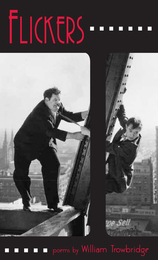
These poems are dark comedies that capture both the eerie and the ordinary. This balance is not easily achieved, but like a veteran comedian executing a pratfall, Trowbridge makes it all seem natural. His surreal family, the Glads, satirizes life in suburbia and reflects the often absurd margins of our urban lifestyle. By contrast, a group of poems revolving around a packing house in Kansas City (Trowbridge worked there as a young man), reminds us of those darker places in our lives that exist just “across the street from the ledgers and lapels.”
The variety of subjects Trowbridge works with is refreshing. Whether he is writing about Buster Keaton, Fred Astaire, June bugs, baseball, the holocaust, Cadillacs, or old dogs, his eye is always focused on the turn of phrase that will catch us off guard. His well-crafted lines are full of wit and humor. He approaches his subjects like Coyote approaches Fox—smiling, ready to expose his dear friend to the reality of his existence through sleight of hand. And, like Coyote, he teaches us to laugh at ourselves or perish under the weight of our everyday lives.
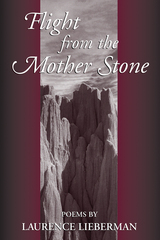
In his newest collection of poetry, Laurence Leiberman widens the scope of his previous Caribbean collections by drawing attention to the small enchanting islands of the Grenadines, a chain running between Grenada and St. Vincent. These outposts, often frequented by sailors, are mainly off the beaten tourist tracks. Lieberman’s poems bring to life all the overlooked people, hidden places, and indigenous but rarely seen animals which can be found on these islands.
These poems are as powerful as voodoo, full of energetic narratives in which Lieberman acts as observer while his characters—native “Caribs” and friends—guide us through the mystifying world of Guyana and the Caribbean: the planting of tree farms, local myths and religious sects, the daily crises of manual laborers working in the gold and diamond mines, and encounters with watras and harpy eagles.
Lieberman’s lines are rhythmic and strong; voices swirl in and out of his stanzas. From Lieberman’s own precise observations to his inclusion of Caribbean dialects, the language created here is deeply textured and unique. The majority of these poems are narratives, stories about a culture that is extremely attuned to the richness of its past. They remind their readers that no matter how diverse a society becomes, it remains irrevocably connected to the land it was born of and the plants and animals that struggle to survive in its midst.

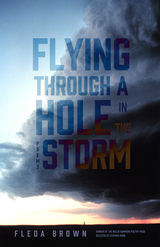
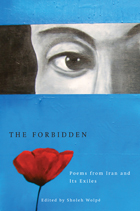
During the 1979 revolution, Iranians from all walks of life, whether Muslim, Jewish, Christian, socialist, or atheist, fought side-by-side to end one tyrannical regime, only to find themselves in the clutches of another. When Khomeini came to power, freedom of the press was eliminated, religious tolerance disappeared, women’s rights narrowed to fit within a conservative interpretation of the Quran, and non-Islamic music and literature were banned. Poets, writers, and artists were driven deep underground and, in many cases, out of the country altogether. This moving anthology is a testament to both the centuries-old tradition of Persian poetry and the enduring will of the Iranian people to resist injustice. The poems selected for this collection represent the young, the old, and the ancient. They are written by poets who call or have called Iran home, many of whom have become part of a diverse and thriving diaspora.
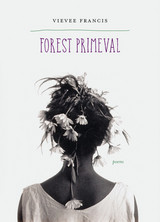
Winner, 2017 Kingsley Tufts Poetry Award
Winner, 2016 Hurston/Wright Legacy Award in the Poetry category
Finalist, 2015 Balcones Poetry Prize
Shortlist finalist, 2015 PEN Open Book Award for an exceptional book by an author of color
"Another Anti-Pastoral," the opening poem of Forest Primeval, confesses that sometimes "words fail." With a "bleat in [her] throat," the poet identifies with the voiceless and wild things in the composed, imposed peace of the Romantic poets with whom she is in dialogue. Vievee Francis’s poems engage many of the same concerns as her poetic predecessors—faith in a secular age, the city and nature, aging, and beauty. Words certainly do not fail as Francis sets off into the wild world promised in the title. The wild here is not chaotic but rather free and finely attuned to its surroundings. The reader who joins her will emerge sensitized and changed by the enduring power of her work.
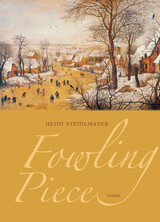
Winner, 2013 Kate Tufts Discovery Award
Winner, 2012 John C. Zacharias First Book Award for best debut book by a Ploughshares writer
A remarkably mature first collection of poems, Heidy Steidlmayer’s Fowling Piece is the debut of a highly original voice. As they search for meaning in both the extraordinary and the everyday, these poems, in exquisitely compressed language, display a fierce attention to the history of individual words and a surprising wit. In Steidlmayer's poetic landscape, words strike the reader as at once familiar and exotic, becoming instruments through which she is able to access and make sense of the most profound, irreducible aspects of human experience. Her mastery of and experiments in form are exceptional for a poet of any age. Fowling Piece offers the rare gift of a new poet whose work is truly new.
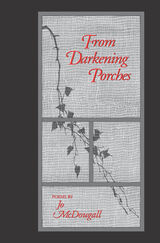
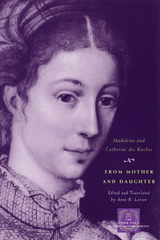
Madeleine and Catherine spent their entire lives in civil war–torn Poitiers, where a siege of the city, vandalism, and desecration of churches fueled their political and religious commentary. Members of an elite literary circle that would inspire salon culture during the next century, the Dames des Roches addressed the issues of the day, including the ravages of religious civil wars, the weak monarchy, education for women, marriage and the family, violence against women, and the status of women intellectuals. Through their collaborative engagement in shared public discourse, both mother and daughter were models of moral, political, and literary agency.
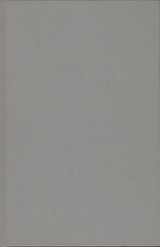
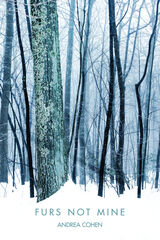
READERS
Browse our collection.
PUBLISHERS
See BiblioVault's publisher services.
STUDENT SERVICES
Files for college accessibility offices.
UChicago Accessibility Resources
home | accessibility | search | about | contact us
BiblioVault ® 2001 - 2024
The University of Chicago Press









